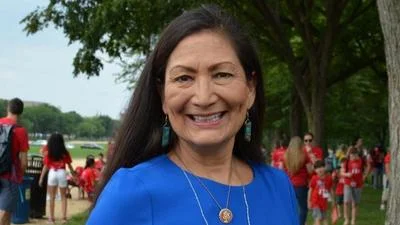Katie Gutierrez, Economic Reform Director of Think New Mexico, expressed concerns about the impact of grocery taxes on health disparities. She said that such taxes could lead individuals to opt for cheaper, less nutritious food options, thereby increasing chronic illness rates. This statement was made during a podcast discussion.
"If you are taxing groceries and people can't afford as much food or maybe they are substituting for lower quality food," said Gutierrez, according to YouTube. "Perhaps instead of buying whole wheat bread, they are instead buying white bread because it's a little bit cheaper. That can cause issues like diabetes. It can cause a multitude of health issues, chronic illness."
Recent research and policy discussions in New Mexico have highlighted the potential negative effects of grocery taxes on health disparities and food access for low-income residents. According to a 2023 analysis by New Mexico Voices for Children, reinstating a food tax could exacerbate the state's food insecurity issues, heightening the risk of developmental delays and chronic diseases among children and families.
In New Mexico, adult diabetes prevalence stands at 12.3%, as reported by the American Diabetes Association's 2025 state fact sheet. Data from the New Mexico Department of Health's Indicator-Based Information System (IBIS) indicate that this prevalence is significantly higher in households earning below 200% of the poverty level and among food-insecure populations. This data underscores the correlation between diet-related chronic illnesses, income levels, and access to nutritious food.
Nationally, an econometric study published in Food Policy revealed that each one-percentage-point increase in grocery tax correlates with a 0.84 percentage-point rise in food insecurity among low-income households. Additionally, counties with grocery taxes tend to exhibit higher rates of diabetes and obesity, supporting the argument that jurisdictions imposing such taxes fare worse in terms of health-nutrition outcomes compared to those exempting groceries from taxation.
Gutierrez serves as the Tax, Budget, and Economic Development Reform Director at Think New Mexico. Her work involves researching how tax and budget policies influence health and well-being. She is also pursuing a PhD in Economics at the University of New Mexico and is an alumna of the Robert Wood Johnson Foundation Health Policy Research Scholars program. Previously, she taught economics at Williams College.









